Q&A: Canada 2020’s Founders, 10 Years Later
In June 2006, more than 200 people gathered at Mont Tremblant to discuss a vision for a more progressive Canada.
It was the first ever meeting of what would become Canada 2020, a new upstart think-tank for Canada’s progressive community.
10 years later and Canada 2020 has grown into one of Canada’s leading think-tanks, publishing books, reports, and convening over 150 events, with hundreds of speakers on stage in front of thousands of engaged Canadians.
To mark the occasion, we asked co-founders Tim Barber, Susan Smith, and Tom Pitfield to reflect on the past decade — the successes, the challenges — and give us some insight into what’s on the horizon.
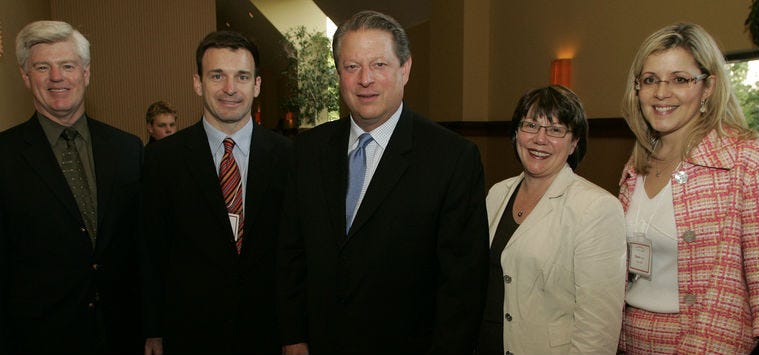
What was your vision for Canada 2020 when you organized that first meeting at Mont Tremblant in 2006?
Tim: We wanted to launch a new think tank in a country where there was a lack of progressive infrastructure. In general, Canada had a real lack of think tanks and what we hoped was that the Tremblant meeting would give us a lift as we started this new project called Canada 2020.
Susan: Our goal was to create an independent forum for progressive policy discussions that focus on the kind of Canada we wanted in 2020. Our thought was that some of the important and “pointy” policy discussions that needed to be had, couldn’t be had within the bureaucracy or the umbrella of a political party. We also wanted to convene people, bring together like-minded, progressive folks and launch a conversation. The exciting thing is, 10 years later, the audience has grown and the conversation continues. We also always reserve the right to “bring in speakers or topics because they were cool” — and our audiences enjoy that too.
Tom: We wanted to create an environment and have informed discussions we just weren’t having in government. We were disillusioned by the kinds of policy discussions we were having. They were safe, they were driven by polls and political aspirations, and they weren’t really honest conversations about what mattered to Canadians and how to improve Canada. We thought the only way we could have those dialogues was to take them outside of government and to have those debates publicly with those people who had the courage to rock the boat.
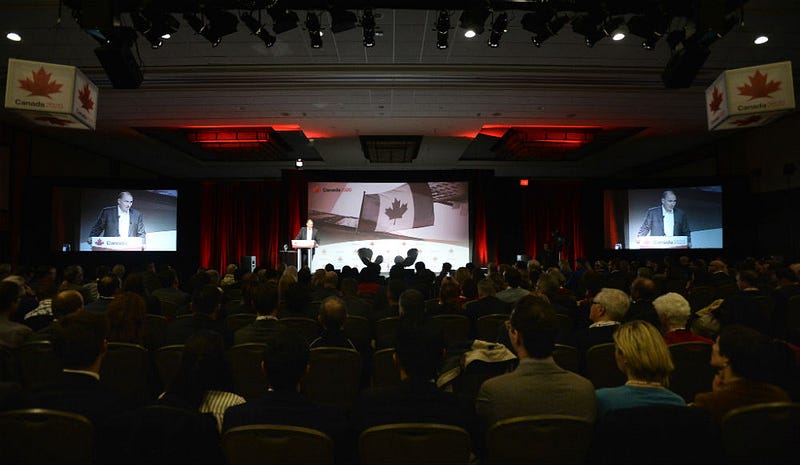
Looking back at the last 10 years of Canada 2020, what are you most proud of?
Tim: I’m most proud of the quality of the international speakers and the international perspectives we brought to Ottawa through our events, our research and our writing. The overall quality of the programming we have put together over the last decade has been amazing. I’m very proud of the people we’ve brought into Ottawa, into Canada — and it wouldn’t have happened without Canada 2020. As a Canadian, I get bashful when people tell me how amazing these events by Canada 2020 are, but it’s true.
Susan: Surviving! I’m proud of how we’ve become a trusted forum and we’ve created a conversation space through our free public events for interesting and dynamic policy discussion. We have gone from having to tell everyone who Canada 2020 is, to having people say — “Yes! I’ve been to this event or that event.” When people come to Ottawa, they are often told that they should tap into what we are doing. I am also proud that we have been ahead of the conversation on topics like greening the oilsands, income inequality and infrastructure investment, with policy papers and events before they are mainstream topics.
Tom: I think that we’re still here. There are a lot of organizations that have tried to do what we do and with so many competing philosophies, principles or priorities, it’s hard to keep so many people interested in a process. I think it’s a credit to us to be able to unify so many people of disparate groups, whether you’re on the left or the right of the spectrum — or the centre of the spectrum — and I think we’ve worked very hard to be respected for our work and our convening capacity.
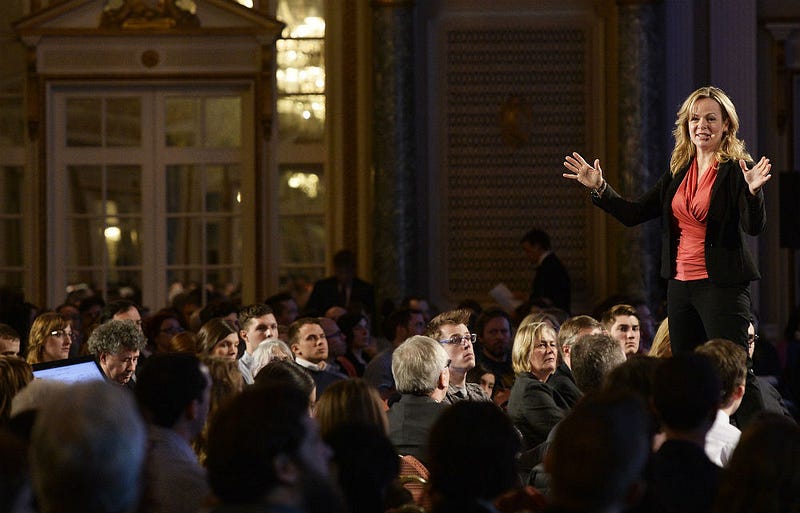
What has surprised you the most during the past decade of Canada 2020?
Tim: It’s not so much surprise, but that the past decade has validated our perspective. When you look at our followers and people that we get to our events, it’s proof there is a real appetite for what we do — and that’s wonderful. The thing I love that we’ve done more than anything is that we’ve created a large progressive community by bringing people together. That’s a wonderful achievement.
Susan: The age range and depth of interest in having robust policy conversations has surprised me. Our audience is so diverse: it’s filled with university students, senior government officials, and ordinary folks who care about the future of Canada. We have had guest speaker after guest speaker comment on the audience size and depth of our packed rooms and offer to come back. The evolution of sponsor support for the organization — it was harder than we anticipated at the beginning, but organizations now see the tremendous value in what we do.
Tom: That we’re still here. (laughs) No, really I think that what surprises me the most is the calibre of people we’ve been able to get to our events. Some of these are people I would never have met any other way. They’re not the kind of people I could just pick up the phone and call, yet a lot of these people reach out to us and ask to get involved. For me, it identifies that we weren’t alone 10 years ago when we were craving honest and meaningful public discourse. The fact is, I think progressive leaders and thinkers have been having trouble finding places to have meaningful discussions. It pleases me that they want to be a part of what 2020 is doing, and that they see 2020 as an important place to discuss things that are important to them.
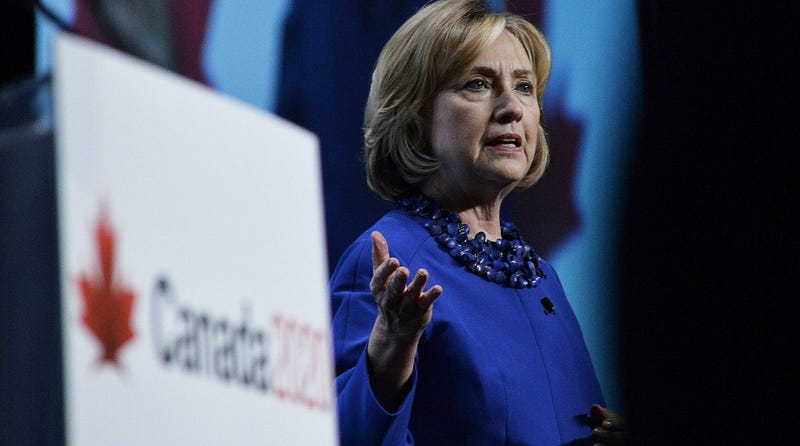
Of the hundreds of speakers on the Canada 2020 stage, who do you think had the greatest impact?
Tim: There are so many, and so many different ones. In general, because we’re small and nimble and we can turn on a dime, there have been many that we’ve held that coincide with the debate of the day. I think there are so many that I could think of where it has given me another data point or another perspective to think differently about issue. Mark Carney is always great, Larry Summers was insightful, Melody Barnes formerly of the White House came and talked about childhood obesity and Lorraine Mitchelmore spoke on carbon pricing that was important.
Susan: It’s hard to pick one. Al Gore at our launch conference had the room and all of Canada buzzing. Larry Summers’ first visit to a public stage in Ottawa was at Canada 2020, days after the 2012 election. He has now provided advice to the Liberal platform and the Trudeau government. Hillary Clinton was a highlight and was a marquee event, as was CNN’s Fareed Zakaria. Justin Trudeau has been on the Canada 2020 stage a number of times, he was at our first conference in 2006. Trudeau has spoken on a number of topics, from foreign policy to Canada-U.S. relations. National Chief Perry Bellegarde also had an important impact on our audiences.
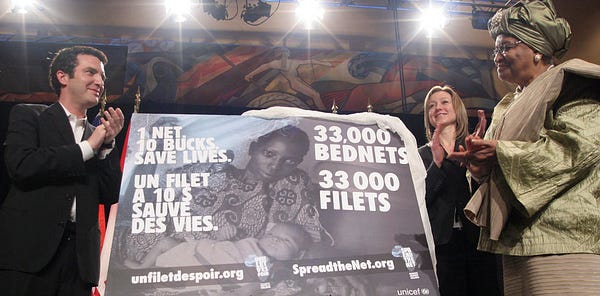
Tom: I don’t have a favourite. There are too many substantial conversations to pick one as a favourite. But in terms of impact, and as an example of the way these dialogues have affected people, this is one of my favourite stories: At our 2007 conversation, a conversation ensued between former MP Belinda Stronach and Jeffrey Sachs and comedian Rick Mercer. Shortly after Jeffrey described the degree to which an investment in a single bed net would substantially reduce the cases of malaria and improve the quality of life of people living in sub-Saharan Africa, the three of them created an organization ‘Spread the Net.’ Within months, that actually raised hundreds of thousands of dollars to ship bed nets out. I like to think that that’s one of the stories we knew about, but that every time we convene a meeting with hundreds of people, and those people have conversations afterwards and feel inspired by what they’ve just heard, I like to think that there are more little ‘bed net projects’ that are blossoming out of it, and feel as though we’ve made an impact.
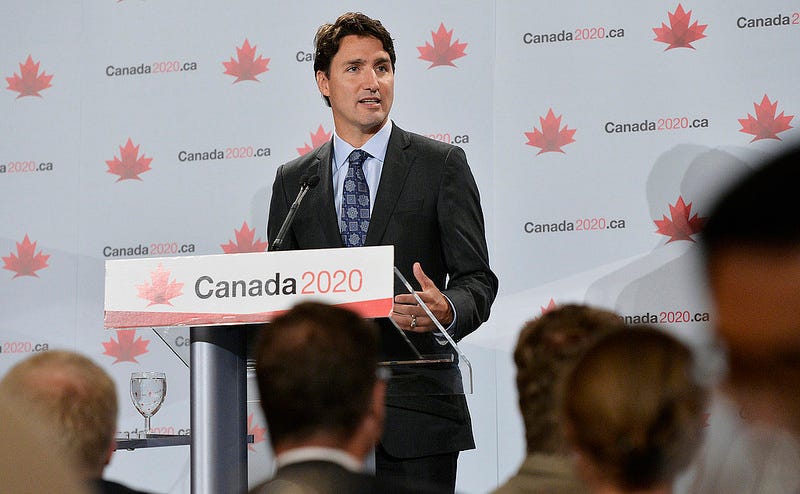
What’s your goal for the next 10 years of Canada 2020?
Tim: To keep doing more of what we’ve done — great events, more original research, scale up in terms of staff and create a permanent home of our own — a progressive “hub.” An office space with dedicated meeting facilities in the parliamentary precinct — that is the next big thing for Canada 2020.
Susan: I’d like Canada 2020 to continue influencing the progressive policy agenda for Canada. I’d like to establish a long-term donor funding base that enables us to tackle more research. I’d like to cement our role as the go-to organization for speakers when it comes to public policy, to create a physical space in Ottawa that hosts our conversations and events.
Tom: I have two goals. One is I’d like to do better at consolidating the original thinking that is coming out of what we do and expanding that thinking around original research projects. When you think of the dialogues we’re hosting, and the way we are testing ideas with Canadians, then the next phase is to take the themes and ideas that are the most popular and evolve them into projects. Secondly, once you have a position on the meaningful project is to try and find more effective, modern and digital methods of reaching the public and making them aware of the importance or value of supporting those types of initiatives.
